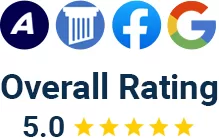H-1B1 Visas for Professionals From Chile & Singapore
Criteria for Eligibility
The H-1B1 nonimmigrant visa category enables U.S. businesses to temporarily engage foreign nationals from Chile and Singapore for specialty occupations. A “specialty occupation” necessitates the theoretical and practical application of highly specialized knowledge, with a minimum requirement of a bachelor’s or higher degree in the specific field for entry into the occupation in the United States.
To qualify for the H-1B1 visa, the foreign national must meet specific criteria, including full state licensure if required for the occupation, completion of the necessary degree, or equivalent experience in the specialty. Recognition of expertise should be demonstrated through progressively responsible positions related to the specialty.
It is important to note that eligibility for the H-1B1 visa is exclusive to nationals of Chile or Singapore.
Applying for an H-1B1 Visa
The H-1B1 visa, while subject to an annual quota, typically remains below the cap, allowing applicants to apply at any time of the year. Application avenues include filing for an H-1B1 visa as a change of status application within the United States or directly through a U.S. Embassy or Consulate abroad.
When applying through a U.S. Embassy or Consulate, the petitioning employer is required to prepare and file a Labor Condition Application (LCA) with the U.S. Department of Labor. They must also confirm the commitment to pay the H-1B1 employee at least the minimum “prevailing wage” for the position.
Upon LCA approval, the employer compiles an application package, providing evidence that the position qualifies as a specialty occupation and that the foreign national is qualified, meeting the minimum degree requirement. The foreign national completes the U.S. Department of State’s online visa application—DS-160, pays the visa fee, and schedules a visa appointment. During the appointment, they present the H-1B1 application package. A successful appointment results in the foreign national obtaining the H-1B1 visa in their passport, enabling entry to the United States and commencing work in H-1B1 status.
For foreign nationals already in the U.S. under a different nonimmigrant visa status, they have the option to submit a change of status application within the country. In this scenario, the petitioning employer initiates the LCA and files a petition for a nonimmigrant work visa with USCIS. Upon H-1B1 petition approval, USCIS issues an I-797 Approval Notice, automatically granting H-1B1 status to the foreign national.
Transferring the H-1B1 Visa to a New Employer
H-1B1 visa holders are able to change employers by having a new employer sponsor a new H-1B1 petition on their behalf.
Family of Visa Holder
Dependents of H-1B1 visa holders (spouse and unmarried children under the age of 21) may apply for the H-4 visa. The H-4 visa status allows dependents of the H-1B1 visa to live in the United States and attend school, but not to work.
